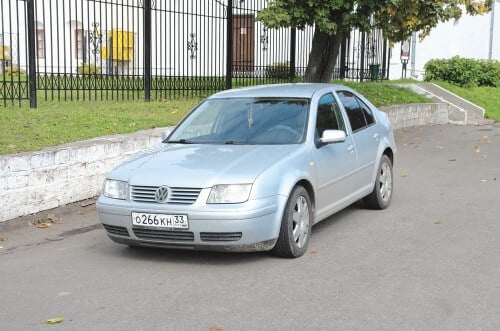Paul Nieuwenhuis, Senior Lecturer and Co-Director of the Electric Vehicle Center of Excellence (ECVE) at Cardiff University, UK, asks where the regulators have been, and what will happen to diesel cars that have gained momentum thanks to their lower carbon emissions compared to petrol-powered cars

By Paul Nieuwenhuis, Senior Lecturer and Co-Director at the Center of Excellence for Electric Vehicles (ECVE) at Cardiff University, UK.
Volkswagen set aside 10 billion dollars to cover the cost of the scandal of cheating in the emissions tests in the US. It is difficult to estimate how much it will really cost to get out of the crisis, but this is a crisis that calls for questions about the moral integrity of society and the industry, and also questions about the Hagitators and the authorities who arrested them.
Although the Volkswagen emissions scandal caught many by surprise, it had actually been brewing for some time. It all started when the European arm of an American association, the International Council on Clean Transportation (ICCT), was asked to prove that modern diesel cars are really clean and therefore can make a significant contribution to improving both carbon dioxide emissions and air quality.
In the US, emission standards are higher than in Europe, where Volkswagen's diesel cars have passed approval. The ICCE decided to check how this happened and reached surprising results.
The association is a member of the team from West Virginia University. The crew members installed portable equipment for testing emissions in three cars - two from Volkswagen and one from B. M.W., driving from San Diego to Seattle, and it turned out that the results of Volkswagen vehicles were disappointing. The Volkswagen Jetta emitted an abnormal amount of nitrogen oxides (NOx), which is one of the regulated toxins, at a rate of 15 to 35 times the legal limit.
When similar cars were sent for official testing at the Air Resources Laboratory in California, they passed the tests. All tests showed that the car emitted permissible amounts of NOx. Following the investigation, Volkswagen admitted that it played with the American pollution tests. The company carried out a "recall" of about half a million cars to repair the software that was installed on the car's emission controls and which only works when the car undergoes official tests (annual test).
The death of diesel?
It can be said that Volkswagen met the requirements of American law in meeting the standards and this raises an important question regarding the efforts being made to reduce emissions. One of the results of the global effort to reduce greenhouse gas emissions was manifested in the easing of diesel cars - not only in the public debate regarding the environmental consequences but also in court rulings. This is one of the reasons why Europe has been more generous in the standards of toxic emissions from diesel cars compared to gasoline cars in recent years.
What will happen to Volkswagen?
Along the way the issue of public health and the effect of toxic exhaust gases from vehicles moved to the back seat. However, this approach is being reconsidered. The mayor of Paris, Anne Hidalgo, for example, announced a plan to ban the entry of most diesel cars starting in 2020. Many feel that low-carbon alternatives such as electric and hybrid cars are becoming more available, and also recently, the first car powered by a fuel cell, making diesel a means to reduce carbon emissions at least centrally.
unsolved questions
For Volkswagen itself, apart from the huge loss in the value of the stock in the last few days, its reputation has been severely beaten in regards to social and environmental responsibility. Diesel-powered cars make up a significant percentage of new car sales in Europe and also in the American car market.
Many of the cars of companies in the Volkswagen group were purchased by people who believed that they were helping to reduce carbon emissions. The TDI engines currently being tested are among the most fuel-efficient engines available today, and lower fuel consumption means less carbon dioxide emissions, but those same people must also have thought that those cars at least met emissions standards.
Others, such as the Brussels-based NGO Transport & Environment, are less surprised. They were among those who expressed the feeling of many car owners, also in terms of fuel consumption, were not close to the official data obtained in the emission tests. The question that arises is why it took underfunded associations to discover the problem, and not the regulators.
.
In addition, it is not clear if this technique was only used to address the strict requirements of the USA in general and California in particular, or if this method was also used to disrupt the emission tests in Europe as well and it is being investigated in Asia as well regarding non-compliance with the emission standards. At the same time, the issue raises important questions about diesel and public support for this technology, which may be compromised. What is certain is that this is one of the biggest crises that hit the automotive industry, on the scale of the crises that hit the banking industry. Maybe its result will be tighter regulations that, like in banking, will significantly improve the industry.
The article was published on The Conversation website under a CC license

2 תגובות
Have you ever stood behind a bus, it is impossible not to cover your nose and ears
Diesel engines have another problem of pollution with particles that can accumulate in the air and cause diseases. There is no actual treatment of the problem but neglect, probably under the influence of the engine manufacturers.